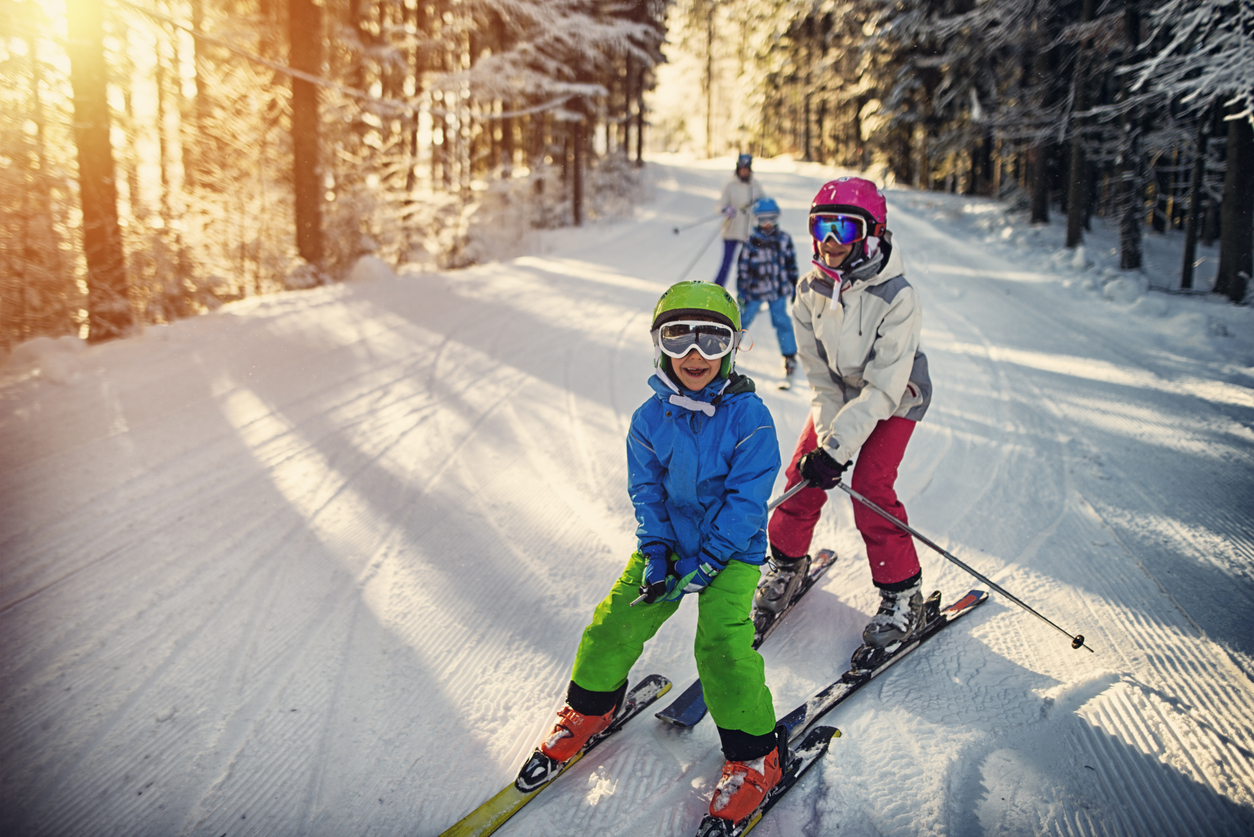Work on your fitness
Increased physical activity without preparation can lead to serious injuries. Remember, start exercising at least two months before your planned trip. Don’t put on your skis until you’ve had even a short warm-up.
Boost your immunity
Large crowds of people are conducive to the spread of viral infections, so it's worth taking care of your immunity before and during your holiday. Pharmacies carry a wide selection of immunostimulants that include ingredients such as plant extracts, fish oils, isolated omega-3 fatty acids, biflavonoids, probiotics, prebiotics, vitamins and minerals. They come in a variety of forms: tablets, capsules, syrups or jellies for children. Your pharmacist will help you choose the right product. Be sure to inform them about all medications and dietary supplements you are currently taking.
Get a first-aid kit together
Get a first-aid kit together before you leave. Include everything you needed on your previous trips, as these items may prove useful again. Don’t forget to take your regular presc.ription medication. If they require special storage conditions, e.g. in the fridge, ask the carrier and the ski resort you are going to whether they are able to help you in this respect. If you’re flying abroad, find out if transporting medicines requires any additional formalities.
See your doctor
If you are being treated for even one chronic disease, speak to your doctor about your skiing trip. You may have to do some additional tests before leaving. Sometimes the doctor recommends limiting some forms of outdoor physical activity or changing the diet. Be sure to tell your doctor which means of transport you are taking and how long your trip will be. This may involve having to take an additional drug, e.g. anticoagulant.
Take care of your skin
Strong winds, low air temperatures and the sun can damage your skin. Before leaving, be sure to buy a winter sunscreen with UV filter. Your pharmacist or qualified dermo-consultant will advise you which product to buy. It’s not true that winter sunscreen has to be heavy and greasy. You should choose the right sunscreen for your skin type.
Watch out for frostbite
Short-term exposure of the skin to low-temperatures can lead to frostbite. Some of the contributing factors to frostbite include circulatory disorders, high humidity or alcohol consumption. Frostbitten areas should be gradually warmed up. Do not rub the frostbitten skin vigorously, as this may cause mechanical damage to the tissues. Chronic effects of moderately low temperatures, especially in women with circulatory disorders, may cause frostbite, which usually appears on the dorsal surfaces of the fingers and feet. These places are red at higher temperatures and may itch and hurt. In both cases you need to see a doctor.
Follow a healthy diet
Physical activity and a proper diet are the perfect pair that allows you to enjoy health for a long time. The skier's diet must be nutritious, rich in all nutrients, but at the same time light. Carbohydrates should be the main source of energy for athletes. Their energy is released more than three times faster than fat. In addition, a diet high in fat reduces the supply of carbohydrates, which decreases muscle performance. Remember to never go out on the slopes without breakfast. This is the most important meal! During the day spent skiing warm up with hot soup or tea with lemon. In the evening, avoid heavy-calorie foods. If you fancy a pizza, for example, eat it on the slopes.

Don’t let your body overheat
Not drinking enough fluids during intense exercise can lead to overheating. Drink plenty to replenish electrolytes. Pharmacies carry special products rich in sodium and glucose, which you can use to make a beverage to take with you on the slopes in a water bottle.
Wear the right clothes
Thermal underwear, ski suit, waterproof jacket, cap, gloves, and goggles are the basics of a skier's outfit. If you can't afford to buy professional "breathable" clothing made of special fabrics, dress in layers. Your clothes should not restrict your movements and you must feel comfortable in them. Do not wear traditional sunglasses. On the slopes you will need goggles with UV filter.
Heal any infections
Most infections are viral and require only relief of symptoms such as pain, fever, swelling of the nasal mucosa, runny nose, sneezing, excessive secretion and retention of thick secretions, sore throat, and generally feeling rundown. Only a small percentage (1-2%) are bacterial infections that require antibiotic treatment. In other cases, the following types of medicines are sufficient:
- antipyretics and analgesics,
- antitussives,
- expectorants,
- narrowing the mucosa,
- antihistamines,
- immunity boosters (vitamin C, rutin, purple coneflower extracts, etc.).
When choosing a medicine, don’t be swayed by advertisers. A pharmacist can recommend the right product for you, after asking some questions about your symptoms, chronic diseases, and medications you take. If you are pregnant or breastfeeding, be sure to tell the pharmacist at the start of the conversation.
„Twój Farmaceuta” nr 3, styczeń/luty 2016





